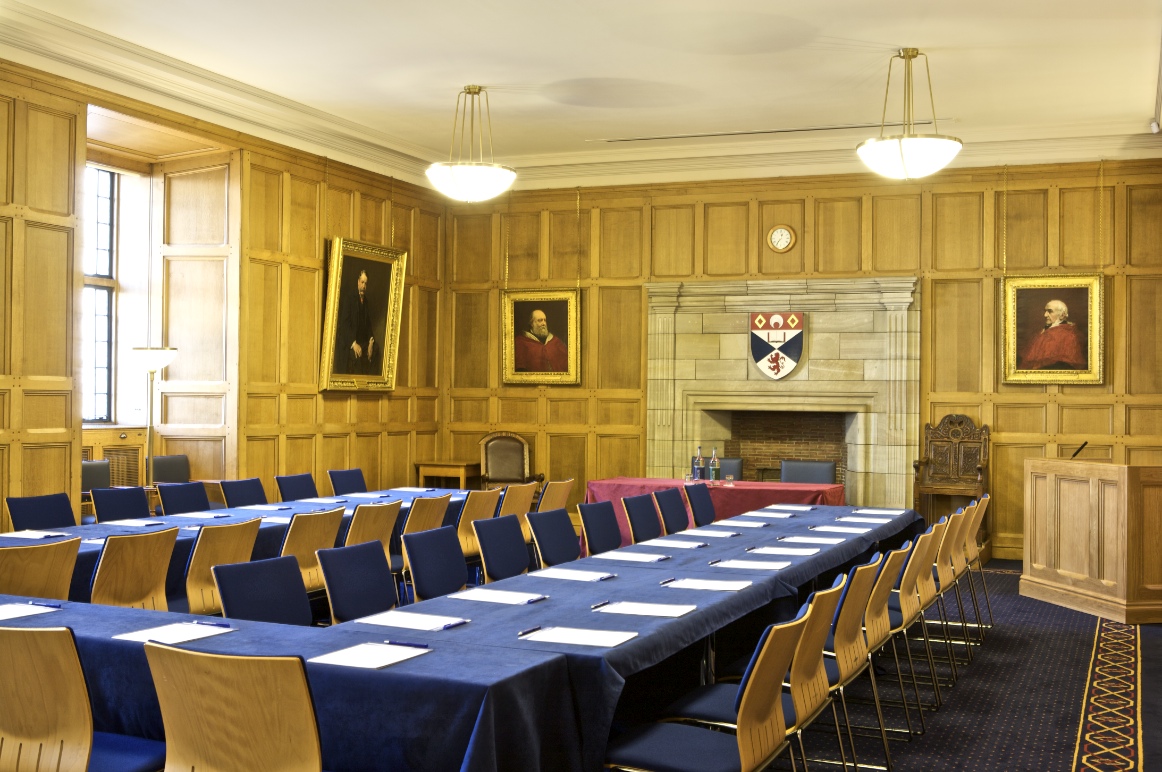Organising a conference as a postgraduate student
Following our GRADskills workshop on conference organising skills, in today’s contribution our Chemistry student, Megan Bryden, shares her tips for those who wish to undertake the task of supervising a conference:

“Despite the long hours, hectic workload and small pay, studying for a PhD can offer unique opportunities that you may not find in the workplace. For example, conferences, especially international conferences, can be an exciting part of PhD life. The opportunity to present your work, network with peers and potential colleagues, and expand your knowledge of the field all make conferences a must do for any PhD student. The intrinsic benefits a conference provides are obvious, however, few PhD students ever get to experience organising such an event, which can be advantageous in itself.
Last spring, I had such an opportunity; I was part of a team of five PhD students arranging the annual conference for our centre of doctoral training (CDT). As such, this was a relatively small affair, with approximately 70 attendees anticipated. We were tasked with a variety of jobs, including preparing the schedule for the two-day event, coordinating room bookings for the lectures and lunch, inviting external speakers that would appeal to the audience and most importantly, arranging the conference dinner.
Firstly, this instilled the importance of teamwork onto me. Throughout the PhD, we often spend much of the time being independent researchers, focusing solely on our own work. As part of the organising committee, however, we had frequent Teams calls to discuss each decision. In part, to ensure even distribution of the work but mainly to reaffirm each choice was a good one.
Aside from each other, we also had great assistance from the school’s administration team, and I cannot thank them enough for the hard work and help they provided.
The initial assignment for us was to organise the two keynote speakers. To ensure we were inviting people who would appeal to a wide proportion of the audience, we asked for requests from our conference attendees. This was exceptionally helpful as a number of names were listed multiple times, allowing us to pick an academic speaker that turned out to be very popular. We liaised with the speaker directly, invited them personally and when they eventually visited, were their first point of contact. This was a useful way to network, and provided links with the speaker which may be beneficial in the future.
Aside from academia, we also thought it prudent to invite a speaker from an industry background. This was somewhat more challenging as we had to search for local chemical industry companies that could feasibly visit St Andrews during a time when Covid-19 was not yet a distant memory. As such, we faced far more rejection emails, although this at least made us aware of the existence of a range of companies that we may not have known about otherwise. Luckily, my PhD is co-funded by an industry partner, which gave us a personal link to a company, and gratefully they agreed to participate.
The conference schedule was also something that needed to be arranged early in the process. As this conference was for our CDT, presenters ranged from first to final year PhD students, hence had a disparate amount of research to discuss. To give everyone the best chance at showing off their work effectively, we decided on a variety of oral, poster and flash presentations, depending on the respective stage of the PhD student.
We created the timetable for the two-day event and in the immediate lead up to the conference, collated abstracts to produce a booklet as well gathering the presentations for each session beforehand to prevent any IT disasters. All of this required significant forethought and organisation on our side to ensure speakers had enough time to produce their abstracts and presentations and we had enough time to pull it all together. Forward planning proved to be an essential part of making the conference a success.
Without a doubt, the most difficult challenge to overcome throughout this process was the lack of response we received from both staff and students. Although I can somewhat empathize with students ignoring our call for abstracts a week before the conference, what I found most puzzling was people not responding to our request for food pre-orders for the conference dinner. A free evening meal is something to be cherished, not neglected, surely. From this, I learnt that sometimes you have to be that annoying person who sends daily reminder emails, otherwise people will just forget. I’m fairly certain that I’m now sent straight to spam for many people as a result of this…
If you take one thing from this post, aside from the merits of organising a conference, it is this: please respond to your emails.”
Thank you so much, Megan, for this helpful contribution! If you all found it useful and inspiring, never hesitate to get in touch with us, and hopefully you will one day be able to put what you have learnt here into practice!